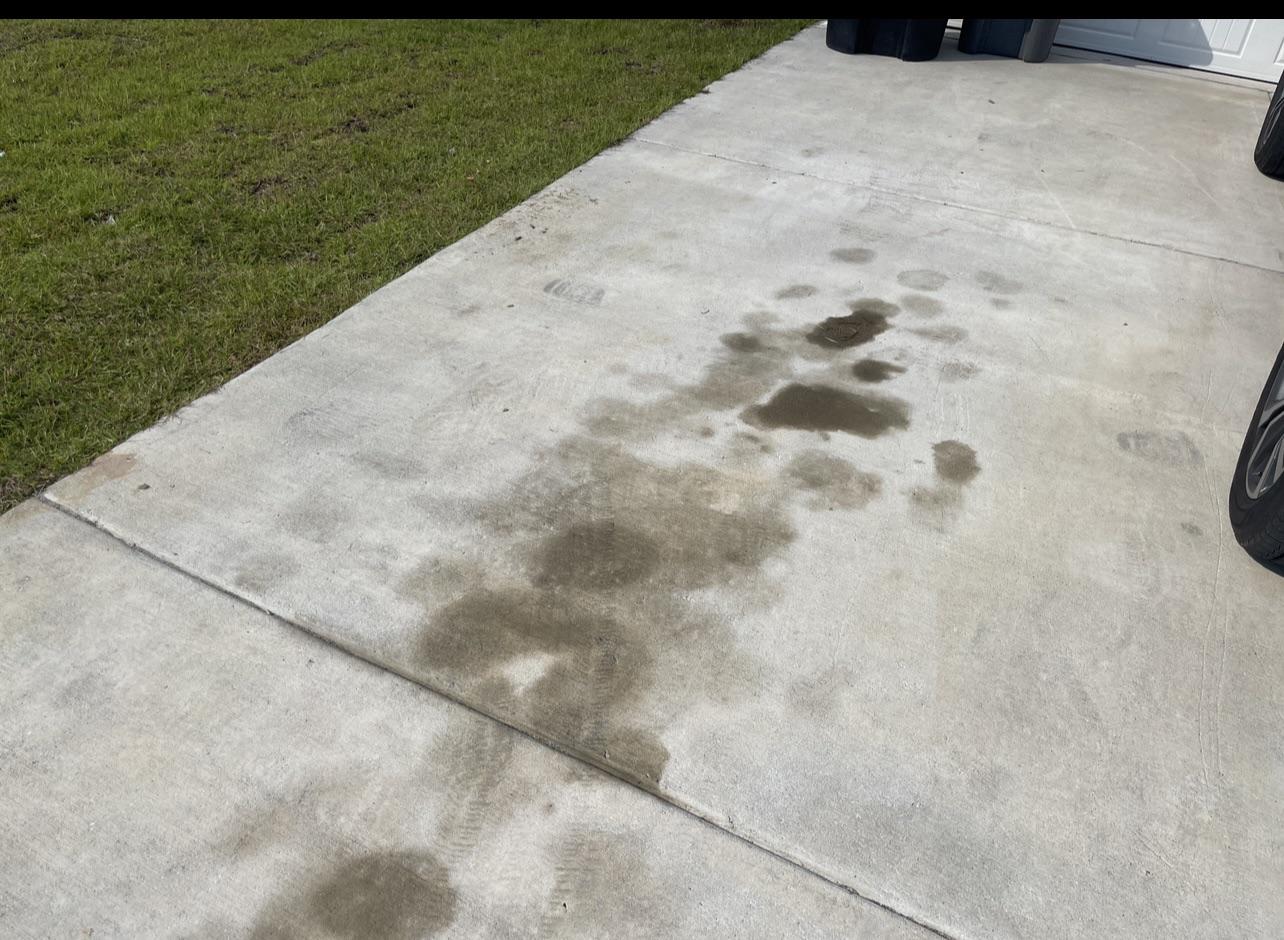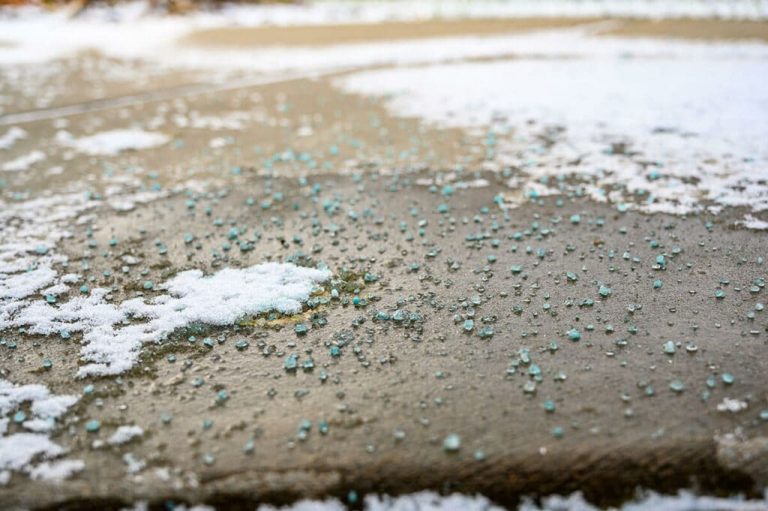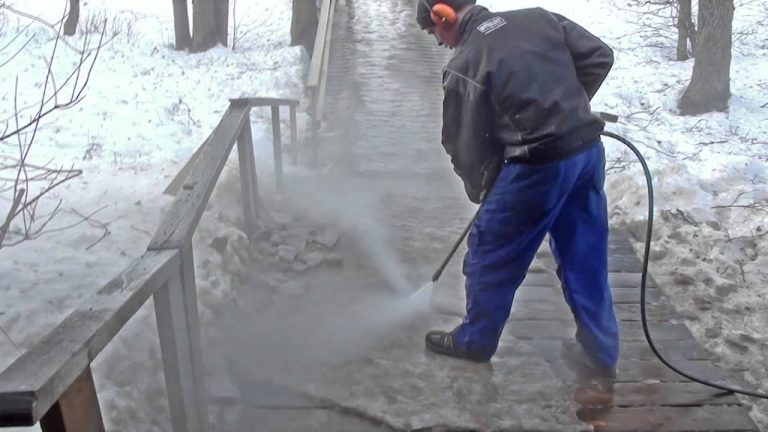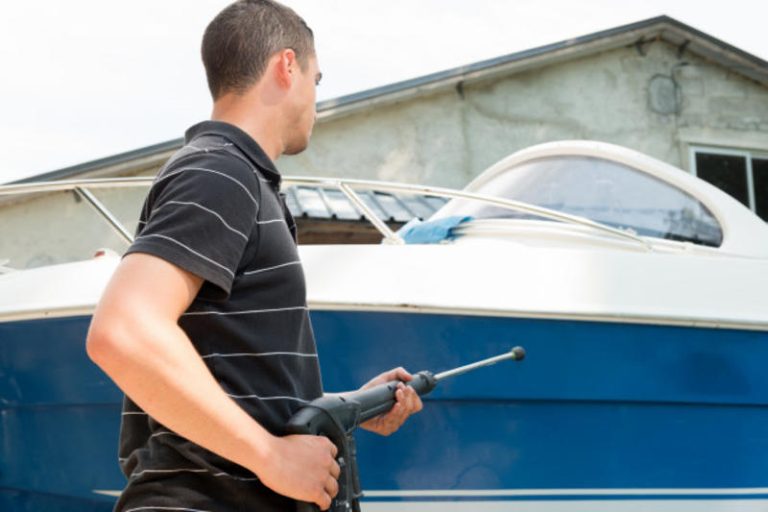
Oil stains on driveways and garage floors are a frustrating eyesore. Whether from leaky engines, lawn equipment, or spills during a DIY oil change, these stubborn spots seem to cling to concrete like they were painted on. If you’re wondering whether pressure washing can eliminate them — the answer is yes… but with a few caveats.
Let’s walk through how pressure washing tackles oil stains, when it works best, and how to combine it with other cleaning techniques for the cleanest results possible. 💦🧼
🧪 Why Oil Stains Are So Tough
Concrete is porous, which means it acts like a sponge. When oil spills, it seeps into the tiny holes and crevices of the surface — making stains more than just surface-deep. Over time, oil oxidizes and bonds with the concrete, turning into a dark, slick, stubborn stain.
👎 A quick rinse with a hose won’t cut it. That’s where pressure washing comes in.
💦 Can Pressure Washing Remove Oil Stains?
Yes — pressure washing can remove most of the visible oil stain, especially if:
- The stain is fresh
- The concrete is unsealed
- The pressure washer is used with hot water and degreasers
However, old or deeply set-in oil may not be completely erased with pressure washing alone. In those cases, you’ll want to combine pressure with chemical treatment for the best results.
✅ Step-by-Step: How to Pressure Wash Oil Stains
Here’s how to do it right:
1. Blot or Soak Up Excess Oil (If Fresh)
If the oil is recent, use:
- Paper towels
- Cat litter
- Baking soda
- Sawdust or sand
⏱️ Let it sit for 15–30 minutes to absorb the liquid, then sweep it up. This prevents deeper penetration.
2. Apply a Degreasing Cleaner
Use a high-quality degreaser designed for oil stains. You can find these at hardware stores or automotive supply shops. Popular options include:
- Purple Power
- Oil Eater
- Simple Green (Concrete & Driveway formula)
- ZEP Industrial Degreaser
🧴 Spray directly onto the stain and let it sit 10–15 minutes, but don’t let it dry.
3. Scrub with a Stiff-Bristle Brush
Agitate the degreaser into the stain using a stiff brush. This breaks the oil’s bond with the surface and pulls it toward the top, where it can be rinsed away more easily.
🔁 Repeat scrubbing if needed for older or deeper stains.
Browse Amazon Here For Top Rated Power Washers And Accessories
4. Pressure Wash with Hot Water (If Possible)
Use a pressure washer rated for at least 3,000 PSI, and if available, one with a hot water function. Hot water helps break down oil much faster than cold water.
- Use a 15° or 25° nozzle for precision and power
- Keep the nozzle moving to avoid etching the surface
- Spray in overlapping sweeps for even cleaning
🚫 Avoid 0° nozzles, which can damage concrete and blast away surface granules.
5. Repeat or Re-treat if Necessary
Some stains may require a second pass. If it’s still visible after drying, reapply degreaser and repeat the process.
🧼 Alternative Methods to Boost Cleaning Power
In some cases, pressure washing alone may not fully lift an oil stain. Here are a few helpers:
🧪 Poultices and Absorbing Cleaners
These are thick pastes made from absorbent materials and degreasers. Apply over the stain, let them dry, and peel or sweep them up. They “pull” oil out of pores.
🧯 Enzyme Cleaners
These biological agents use bacteria to “digest” oil and grease — ideal for eco-conscious homeowners. They work slowly but can reach deep into concrete.
🌿 Great for people trying to avoid chemical-heavy solutions.
🔥 Torch or Flame Treatments (Advanced/Pro Use Only)
Some professionals use heat torches to evaporate or burn off stubborn oil. This is risky and not recommended for DIYers, as it can crack or scorch surfaces if not handled carefully.
🏠 Garage Floors: Slightly Different Rules
Garage floors are often coated or sealed, which changes the approach:
- Epoxy-coated floors: Use a soft brush and degreaser — avoid high pressure that could damage the coating.
- Bare concrete floors: Use the same process as driveways, but watch for drainage — oil-infused water must be disposed of responsibly.
💡 Tip: Always check if your garage has a floor drain and where it leads — you don’t want oil runoff entering the sewer without treatment.
🌧️ Aftercare and Prevention
Once your driveway or garage floor is clean:
- Apply a concrete sealant to reduce future staining
- Place drip mats under cars
- Regularly clean spots before they bake in
- Perform seasonal washes to reduce buildup
❌ When to Call a Pro
If stains are:
- More than a year old
- Caused by transmission or hydraulic fluid
- Spread over a large area
- Inside a commercial or regulated zone
…it may be time to bring in a professional power washing service with advanced tools like reclaim systems, hot water machines, and biodegradable solvents. 🧰
✅ Final Thoughts
Yes, pressure washing can absolutely help remove oil stains — but it works best when paired with the right degreaser, scrubber, and a little patience. With the right setup, even the worst driveway or garage oil stains can become a thing of the past. 💪🛢️🧽
Browse Amazon Here For Top Rated Power Washers And Accessories






